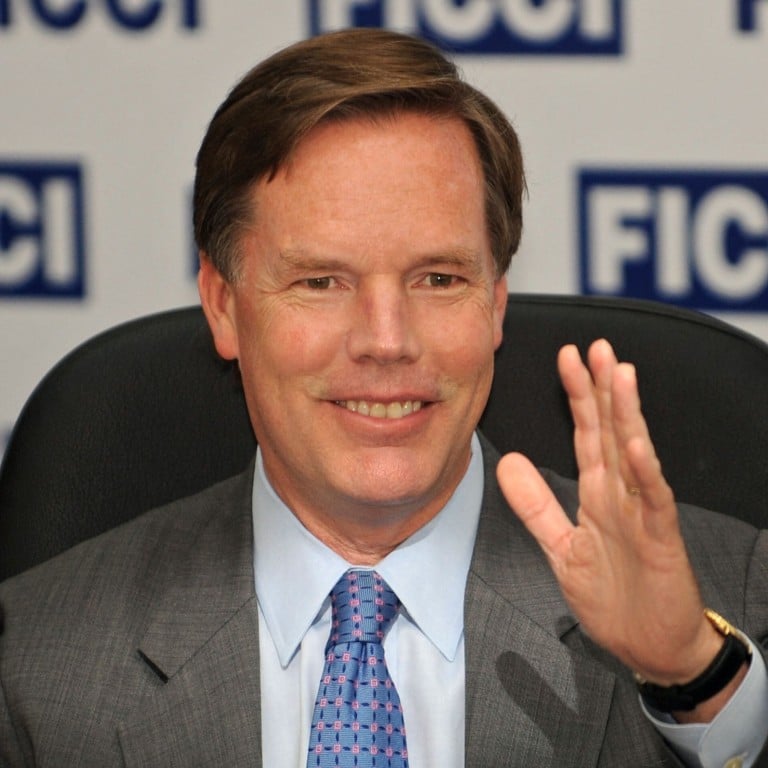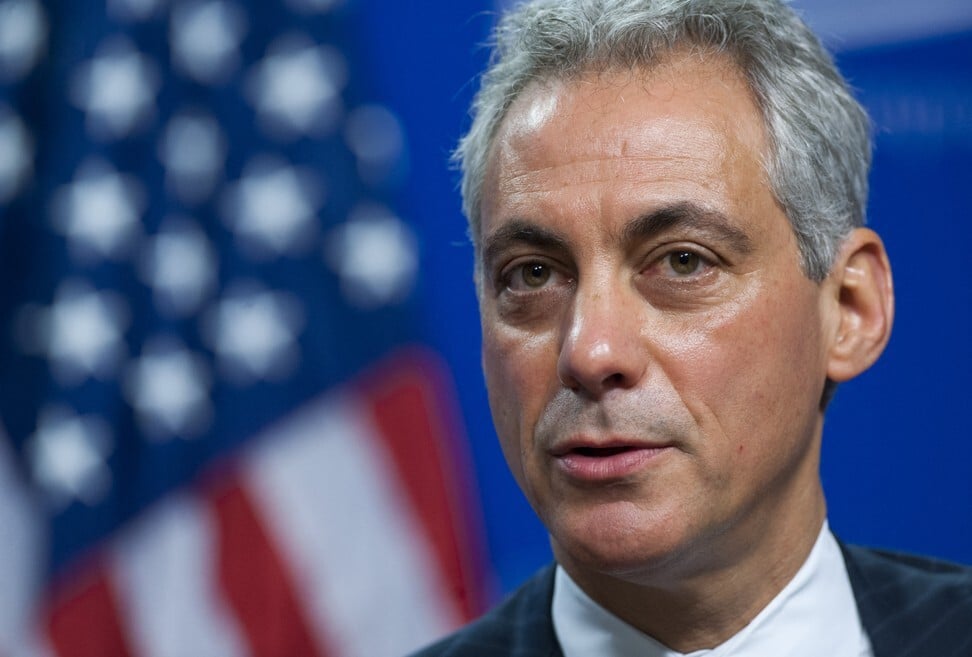
Long-time diplomat Nicholas Burns to be nominated as US ambassador to China
- Rahm Emanuel, a former Chicago mayor and White House chief of staff under president Barack Obama, is the choice to be ambassador to Tokyo
- Burns is called ‘an outstanding choice who will be warmly received by everyone’
The selection of Burns, who served in the US State Department for more than three decades in high-level positions in Republican and Democrat administrations, was widely expected, and it sends an important message to China and US allies, analysts said.
“This is the most predictable development in an unpredictable relationship,” said Jeffrey Moon, head of China Moon Strategies and former consul general in Chengdu. “He’s a diplomat’s diplomat, an outstanding choice who will be warmly received by everyone, by Congress; professional diplomats will be encouraged.
Among past posts on Burns’s long résumé include US ambassador to Nato from 2001 to 2005 under president George W Bush and tenure as a member of then-secretary of state John Kerry’s foreign policy advisory board from 2014 to 2017 during president Barack Obama’s administration.

Among the potential challenges he faces, however, include the decade-plus that Burns, currently a professor at the Harvard Kennedy School, has been out of government.
“A lot has changed,” said Brett Bruen, president of Global Situation Room, a former US diplomat and White House head of global engagement under Obama. “It will be really important who he selects as deputy chief of mission and important that the White House listens to the institutional experts on China.”
Also on Friday, Biden announced that his choice as ambassador to Japan was Rahm Emanuel, former White House chief of staff to Obama and former Chicago mayor, who at one point was also rumoured as the possible ambassador to China.
Career diplomat tipped to be next US ambassador to China
Emanuel is likely to have a peripheral role in China policy given the growing importance of the Quad nations – Japan, the US, India and Australia – as a counterbalance to Beijing’s growing clout.
But the naming to refined, mannered Japan of Emanuel – nicknamed Rahmbo after the action movie for his take-no-prisoner style – also left some scratching their heads.
“I honestly do not understand that,” said one former diplomat who asked not to be identified given Emanuel’s reputation for remembering perceived slights. “There’s as much logic with Burns as there is lack of logic with Emanuel.”
With the naming of Burns and the arrival last month in Washington of China’s new ambassador, Qin Gang – who, since replacing highly respected outgoing ambassador Cui Tiankai, has muted his past, confrontational nationalistic “wolf warrior” rhetoric – some see early hope that the pieces are in place to start stabilising the rocky bilateral relationship.
“The incoming Chinese ambassador would do well to learn from his predecessor, who firmly represented his country but also spoke to an American audience,” said Moon, a former National Security Council official. “If he can drop the wolf warrior attitude, give criticism but also receive it, he could be a good ambassador.
“This is a critical point where the two countries need to reach some sort of understanding.”
Appointing an experienced diplomat – rather than a political appointee who did little more than help raise election money – also sends a signal that the Biden administration is interested in crafting a diplomatic strategy, not just responding to short-term developments, analysts said.
Former diplomats attributed the long delay in formally naming Burns to Biden’s preference for meeting and signing off personally on nominees. Most said he should sail through Senate confirmation hearings.
Will US defence chief’s trip reinforce Biden’s commitment to Southeast Asia?
In 2005, while serving as US under secretary of state for political affairs in the Bush administration – the most senior career Foreign Service position – Burns was chosen to negotiate a civil nuclear trade pact with India, an effort that reversed a US policy that shut India out of international civil nuclear trade for disavowing the world’s non-proliferation regime with a nuclear test in 1974.
Washington hardened this stance in 1998, when India announced that it had successfully tested nuclear weapons.
India’s then-foreign secretary, Shyam Saran, and Burns “quickly decided we couldn’t afford to farm this out to our respective bureaucracies”, Burns said at the outset of negotiations, according to a case study by the Harvard Kennedy School, where Burns is a faculty chair.
Some three years after negotiations between Burns and Saran started, the civil nuclear agreement was signed and the US began working toward full civil nuclear cooperation with India
Burns’s experience with Nato also could be useful as Washington works to partner with allies similarly frustrated with China’s human rights, trade and military policies.
Additional reporting by Robert Delaney

